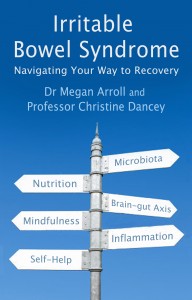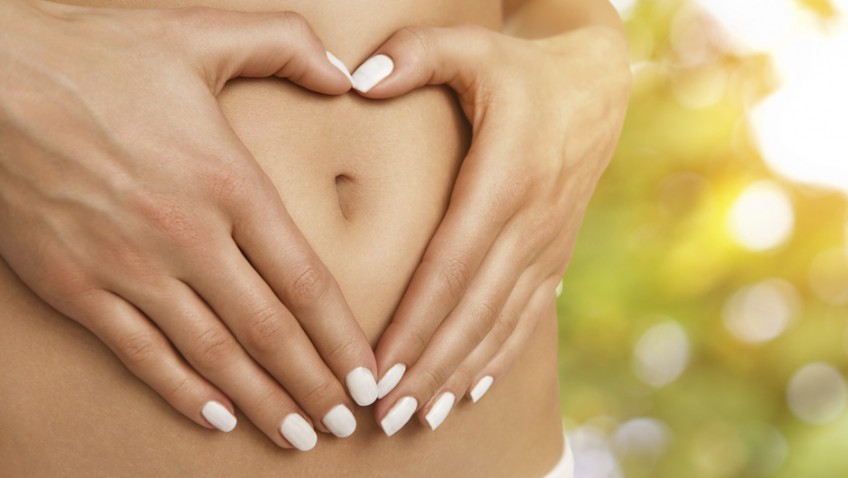Although not life threatening Irritable bowel syndrome (IBS) is a serious condition that impacts on all areas of people’s lives plus, many are dealing with the stigma that surrounds anything to do with bowel functions and the condition. IBS Awareness Month aims to increase knowledge, reduce stigma and support people with this embarrassing and at times debilitating condition.
A new, practical book published this month called ‘Irritable Bowel Syndrome – Navigating Your Way To Recovery’ written by psychologist Dr Megan Arroll and Prof Christine Dancey, one of the founders of the IBS Network, provides practical advice on how to obtain a diagnosis with step-by-step advice on how to deal with the condition.
Dr Megan Arroll, says: ”IBS varies from person to person; there are no definitive treatment guidelines that will work immediately for everyone diagnosed with IBS, and even though two people may have the same diagnosis, they could have different IBS triggers, symptoms and severity.”
- Make sure you have the right diagnosis. The symptoms of IBS overlap with other illnesses such as inflammatory bowel disease (which includes Crohn’s disease and ulcerative colitis), endometriosis, Coeliac disease (an allergy to gluten), all of which have different treatments. So it’s important to get the right diagnosis so you can find effective treatment.
- Figure out your triggers. Food and drink are not the only triggers for IBS flare-ups – stressful situations can also spark symptoms. It can be hard to remember exactly what we were doing before a flare-up, so for two weeks write IBS diary, noting down not only symptoms, food/drink and daily activities but also anything that causes stress or anxiety (this can include the anticipation of symptoms themselves as having IBS is stressful).
- You can treat your most troublesome symptoms with medications. Medicines can help with individual symptoms but there‘s no one overall ‘IBS pill’ that will relieve all the symptoms of IBS. For constipation, laxatives can be helpful and there are different types which work is slightly different ways (bulk-forming, stimulant, osmotic), but all aim to help faeces to pass through the gut. For diarrhoea, a drug called Loperamide will slow down activity in the bowel and for stomach cramps antispasmodic medications such as Buscopan and Mebeverine can calm the spasms which cause pain and discomfort.
- As well as avoiding food and drink triggers follow this general dietary advice. Eat oat-based instead of wheat-based products and opt for soluble types of fibre such as lentils, beans, strawberries, blueberries, oranges, pears, cucumbers, celery, carrots and dried peas rather than insoluble fibre (e.g. wheat bran, barley, couscous, brown rice and bulgur wheat). Try to drink plenty of water each day and limit the amount of caffeinated coffee and tea you drink. Also eat linseeds every day – you may need to experiment with the dose, starting with a teaspoonful, up to a tablespoonful.
- Use probiotics and prebiotics products. Probiotics are live bacteria ingested in foods such as yoghurt and sauerkraut and in probiotic supplements. Probiotics help to populate the gut microbiota with ‘good’ bacteria such Lactobacilli and Bifidobacteria that some people with IBS lack. Prebiotics are essentially the ‘food’ for probiotics and research has shown that taking a prebiotic supplement can increase the number of good bacteria in the gut. Therefore, taking both a pro- and prebiotic in one combined supplement or as a yoghurt drink can help repopulate the good bacteria which may be low if you have IBS.
- Take moderate exercise. Especially if constipation is your overriding symptom. Research from the Netherlands has shown that a 30-minute of brisk walk plus 11 minutes of home-based physical exercise a day can reduce constipation and increase ‘transit time’ of food.
- Self-help strategies. There are many psychological and behavioural approaches to managing IBS such as gut-directed hypnotherapy and CBT but there are also self-help strategies that can be of benefit such as mindfulness.
- Practical tips to combat symptoms. Practice diaphragmatic breathing to stimulate the parasympathetic nervous system, which will regulate the brain-gut-axis as well as help calm the anxiety associated with a symptom flare. If going out feels terrifying in case of embarrassing symptoms, take an ‘emergency pack’ with you that holds symptom medications, flushable wet wipes
 and a change of underwear in sealable plastic bag (soiled underwear can be rinsed and then put into the plastic bag to wash later at home). The chances are that you won’t need to use the pack’s contents, but just having it can help with the anxiety of a possible flare-up.
and a change of underwear in sealable plastic bag (soiled underwear can be rinsed and then put into the plastic bag to wash later at home). The chances are that you won’t need to use the pack’s contents, but just having it can help with the anxiety of a possible flare-up.
Irritable Bowel Syndrome: navigating your way to recover published by Hammersmith Books https://www.hammersmithbooks.co.uk/ R.R.P £14.99 or eBook £4.99
For further information and support visit IBS Network: www.theibsnetwork.org
Dr Sarah Brewer, GP looks at three products on the market to support IBS sufferers.
3 of the Best Natural Remedies for Your Digestion
- Natural remedies such as silicolgel can help some people and treats the gastrointestinal symptoms of Irritable Bowel Syndrome (IBS) such as; nausea, flatulence, stomach ache, discomfort and diarrhoea.
- Peppermint Oil helps reduce spasms of the smooth muscle found in the lining of the gut. On average, three out of four people with IBS who take peppermint oil experience a greater than 50% reduction in symptoms compared with 38% taking inactive placebo.
- Look at taking a good pre / probiotic supplement that contains both Lactobacilli and bifidobacteria there are a number on the market to choose from.





